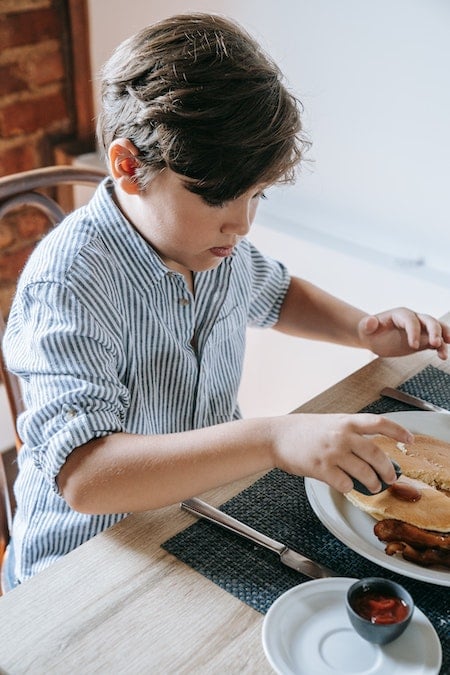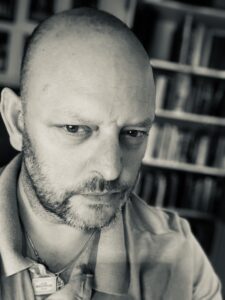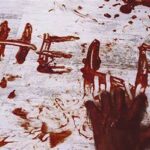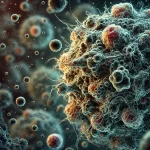by Jon Biddle
My name is Jon Biddle, and I overeat, binge eat to excess and capacity. I feel powerless in my addiction and want to die because of it. This is what the twelve steps or twelve traditions demand from me and only when I realise I am powerlessness in my addiction.
Binge eating and overeating is an addiction, like drugs, alcohol, gambling and sex. Even gym bunnies can slot into this category if the overriding thought process drives the person to continually do the same thing that results in harm.
For those that know me will know that I have been in therapy for eight years, dealing with Complex Post Traumatic Stress Disorder (C-PTSD). It would be convenient for me to label this effect my military career, but my mental health wasn’t caused because of combat or the hardened life I used to live within the platoon.
My mental health was already severely affected the day I walked through the gates of Basingbourne Barracks, day one of my basic training. If the military did anything for me, weirdly, it gave me freedom and choice. Considering the discipline of the army and all the restraints that come along with it, that is a dichotomy to the freedom of choice that was absolutely absent from my childhood. The only emotion I could demonstrate was happiness. Like a lot of the generation X’ers, our parents were the baby boomers born immediately after the war to traumatised parents. Passing on the emotional hang ups through the years to us. I’m not sure I have met a Gen X that hasn’t got a mental health issue. My upbringing was no different. Apart from the passive aggressive covert narcissist for a father, and mother who who sat and did nothing to stop the abuse. The Gen X cohort was also nicknamed the latchkey generation, and I was no exception coming back to an empty house as a child. All these things have a collateral effect on the psychological development of us and our children.
I’m and big guy, my colleagues in hospital would use the clinical terminology; morbidly obese, my comrades in arms would call me a fat knacker or sludge gulper and incidentally, the only people allowed to. To the many judgmental people out there, I would just be called fat.
Either way, the connotation creates an uncomfortable truth in me, a cycle that perpetually circles back to the maxim of addiction – to separate, isolate, and destroy.
The destruction bit is important, because with it comes with the suicidal ideation that I have most days.
I once checked the tensile strength of the tow rope in the garden shed to see if this could hold my weight from the neck. If Sam was abroad and not sitting in the kitchen reading her book, the fear of her discovering me and hating me and then dealing with me in the afterlife was all that I needed to stop. Although the despair of my mental state scared me and appalled me at the same time.
When I was in the army, I was skin and bone, a lean, mean fighting machine. Robust and indestructible. I could run, boy, I could run. Those heady days where being out of breath through real exhaustion is something I miss.
After leaving the army, the fitness stopped, but the calories carried on. With an invisible drive to eat, to consume at every opportunity and spread the weight of pounds versus pain. Now my health has become compromised; and yet still, the never ending need to eat, to consume the pain of my childhood abuse, unquenchable in its pursuit, in a benign, friendly way, lead me down the garden path to my mortality.
It’s okay to die of overeating – I thought.
And this thinking is as normal as driving the car to work or taking the dog for a walk.
Of course, it’s not okay; to die of obesity. It’s not okay to let an endocrinological disease slowly consume me from within, and it’s not okay to live a lonely existence while being ensconced in a loving family who wants nothing but happiness and love for me. But to the cunning and baffling entity that is addiction, this isn’t enough, everything is simply not enough.
Hitting the brick wall and finally yielding to the exhausting voices in my head to eat has, in some way, lifted the burden a little. Not too much.
The voice is still there, hauntingly chirpy in its resolve to turn the screw of my addiction. Turning to my family doctor, here’s the sage advice from him.
“Why don’t you move to Africa to understand the real meaning of food,” after my cry for help – yes, a family doctor responsible for community health said this. Another doctor said “why don’t your just eat less and workout?”
“Gee, I had never thought of that. How silly of me. I thought twenty years ago I would give this obesity a try, and look at me now; just killing it.”
I considered bariatric surgery. Even here I hit a red flag. Part of the pathway of having this surgery is a psychological assessment, it didn’t take the brains of an archbishop to realise that I could be one of the 28% of candidates who go on after surgery to kill myself, paradoxically weighing the scales of risk, die of obesity related disease or maybe, just maybe die of being unable to satisfy the voices in my head to keep on eating after making it surgically impossible to consume the vast amounts I would normally eat. So, to add insult to injury with my self worth someone psychologically diagnosed me with Binge Eating Disorder (BED); yay, I now had a label, fat because of a disorder or syndrome depending on the medical journal one reads. That same doctor who thought moving to Africa was a neat idea received a letter from the surgical team of their diagnosis, in bold letters the words read Mr Biddle is prone to suicide ideation and will need close psychological supervision and pharmacological support to get through his complicated mental health disease.
The surgical team used the words disease and still…
…Wait for it – the tumble weed rolling across the horizon for that correspondence from a doctor that thought moving to Africa was the wisest prognosis. The BED diagnosis was three years ago and still yet to be contacted by the mental health team in my catchment area.
Maybe Africa is a good idea after all.
These comments from people do nothing for the augmented levels of self loathing I feel every day. I work with doctors all the time and the bias and discrimination of obese patients boils my piss. We throw the kitchen sink clinically at drug addicts, drinkers, gamblers and even sex addicts, yet fat people are commonly referred to as fatties, tubbies, whales. Here’s a peach of a comment I heard not too long ago, from an individual who took the Hippocrate oath to first do no harm and to do good, openly admitting to me they were a fattest! I reminded them I was morbidly obese, looking me up and down. They couldn’t see the fat suit I wore emphasising succinctly my point.
Never have I met a larger person in the clinical environment who told me they enjoy being fat – I wonder why? Maybe scratching at the surface of the emotional turmoil most of us have will see the wider, more disturbing picture. The obesity epidemic is a genuine concern, and the world has changed immeasurably, which will make the situation worse.
My obsession with the food would have gradually built over time. Learning from an early age to feed the pain of abuse. To nurture myself at least, something I never received as a child and getting worse because the realisation of trauma makes me turn to food. The worse I am the more I need to eat and coming to this realisation is weirdly a massive step forward.
My mind uses food to compensate for things and lies to me about the ugly truth of the abuse I received as a child.
The one thing I want to understand on this journey of healing is why?
Why the food?
The answer to this after years of therapy is simple.
Nurture.
In the absence of love, a child will grapple at anything to find something to love them. With me, it was food that I hung onto. And with food, how do I heal from this?
It’s not like booze where you can just stop, it’s not like drugs where you can go through a pharmacological process to lessen the withdrawal.
Nutritious food is the cornerstone of my recovery. And building a habit of checking into the voices, refusing the voice permission to abuse me any longer.
It’s not perfect, but right now, it’s all I have. And it’s something that I am prepared to share with you.
Have you been diagnosed with a chronic eating disorder, reach out, tell me your story?














